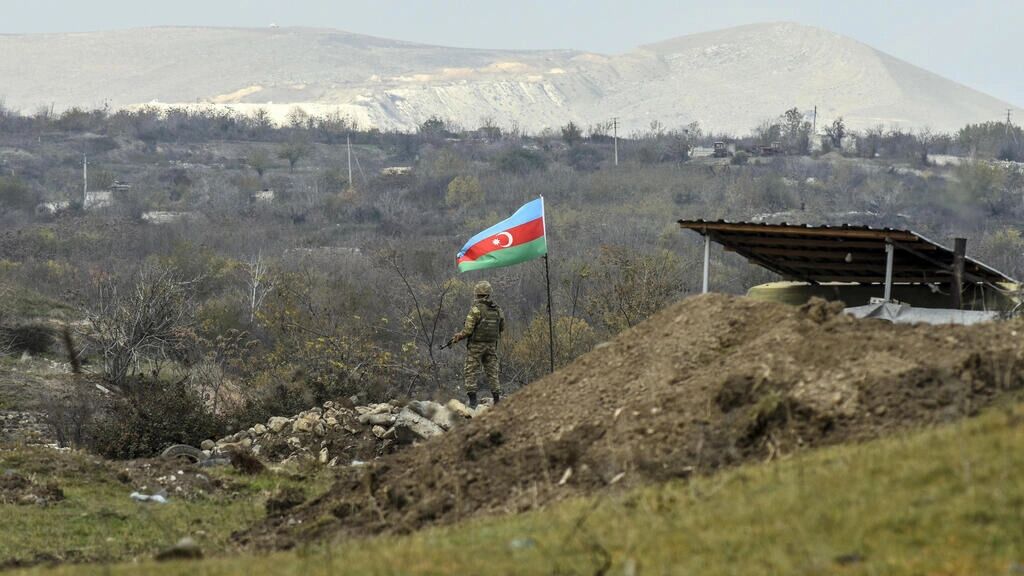Baku government’s claim is that there is no such discussion in the tripartite agreement in the form that Azerbaijan is proposing and trying to realize it with aggressive military, security and political policies in the last two years. What is proposed in the agreement of November 10, 2020, is the creation of a transport “route of communication” between the Republic of Azerbaijan and Nakhchivan, including the unhindered movement of citizens, vehicles and goods, which is guaranteed by Armenia, and the control of transport by the FSB of Russia.
Despite the explicit statement of paragraph 9 of the tripartite ceasefire agreement regarding the establishment of a “communication route” under the supervision of Russia, and despite the fact that in this paragraph there is no name of “corridor”, “channel” or “passage”, as well as the exact cities and regions where the communication route passes and its “length” and “width”, we are still witnessing important challenging and controversial issues from Baku in this field.
An important question that is raised here is why the government of Azerbaijan, contrary to the provisions of the 2020 agreement and the provisions of international law, still insists on reopening the alleged corridor of “Zangezor” in an exclusive way?
Examining the developments of the last two years in the South Caucasus clearly shows that the government of Baku is pursuing interests in the alleged Zangezzor Corridor, with “territorial continuity” at the top of them, but it should not be overlooked that, in addition to Baku, Turkey is the most important beneficiary of the construction of the aforementioned corridor.
The current conflict in the South Caucasus is no longer over Nagorno-Karabakh and is not limited to Armenia and Azerbaijan, but has gained further dimensions and many players with strategic goals have entered it, Turkey being at the top because in recent years, the Turkish government has seriously placed the approach known as the “Turkish World” on the agenda of its foreign policy and seeks to form “Greater Turkistan”, so the main beneficiary of the creation of such a corridor is Turkey.
The most important function of the alleged Zangezzor Corridor, which is sometimes called the “Turkistan Corridor”, is to remove the biggest land and physical obstacle to the advancement of the Great Turkistan policy, which is related to Armenia and Sivnik province.
This is very important and dangerous from a strategic point of view, so that in 2020, in the midst of military conflicts between the military forces of the Republic of Azerbaijan and Armenia, “Ibrahim Karagol”, the editor of “Yeni Shafaq” newspaper, an unofficial organ of the ruling party of Turkey, wrote on his personal page:
“Iran no longer has any border with Karabakh and should not be allowed to have a border with Armenia either; Nakhchivan should be connected to Azerbaijan and the road to Central Asia should be opened. Iran and Russia’s unchanging doctrine of preventing the integration of the Turkic world must be ended!” He also emphasized on his page, “The Karabakh war has just started and is considered the first step!”
Therefore, it is quite clear that the Karabakh conflict has practically become a “cover” for the advancement of strategic and long-term policies of some regional actors, which can lead to “dangerous strategic consequences”.
“Changing borders and geopolitics of the region” is the most important consequence in this regard. If the Zangezor Corridor is built with the coordinates claimed by the Baku government, it will cut off Iran’s communication lines with Armenia, and as a result, cut off one of Iran’s important transit routes to Europe. Disruption in Iran’s trade relations with Russia, Armenia and Georgia is another consequence of the alleged Zangezzor corridor. This issue will also reduce Iran’s geopolitical advantage in the Caucasus and disrupt the balance of communication lines in the region, which is not acceptable in any way.
The establishment of NATO in the South Caucasus and on the northern borders of Iran is another important consequence in this regard. According to the experiences of NATO’s activities and functions, this issue will definitely cause “weakening of the geopolitical order” and “expansion of insecurity and instability” in the South Caucasus in the long run, the waves of which will affect Azerbaijan in the first place. It is not without reason that in some political and media circles, the alleged corridor is also referred to as “NATO’s transfer corridor to the Caucasus”.
In 2020, “Adam Thomson”, the former representative of the British government in NATO, published a statement addressed to the British Prime Minister and wrote, “I request Mr. Prime Minister to use all his strength at this critical moment in history to take the last step to complete the 15 year project of NATO. “London, with the participation of the United States and the European Union in the form of NATO, should support Azerbaijan’s will to connect land to Nakhchivan!”
In conclusion, it should be emphasized that the Islamic Republic of Iran has a specific policy towards changing borders not only in the Caucasus, but in its surrounding environment. This is a “strategic issue” for Iran to be sensitive to any change in borders or geopolitical and geographical structures in its surrounding environment and to show a serious and tough reaction;
As seen in the issue of the Iraqi Kurdistan referendum, the Islamic Republic of Iran was against the independence of Iraqi Kurdistan and prevented it, and in the South Caucasus, the change of borders, which aggravates conflicts and disputes in the surrounding environment and creates security threats. It is “unbearable” foe Tehran and will not accept it.










0 Comments